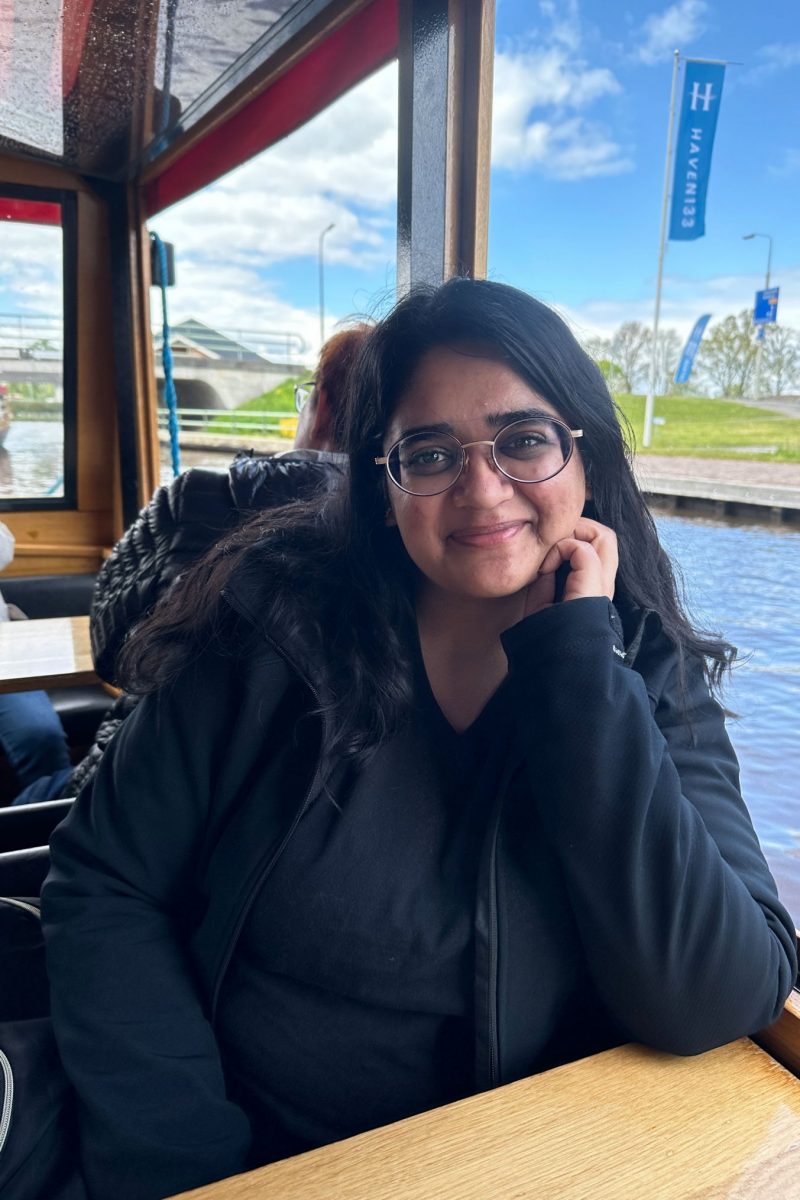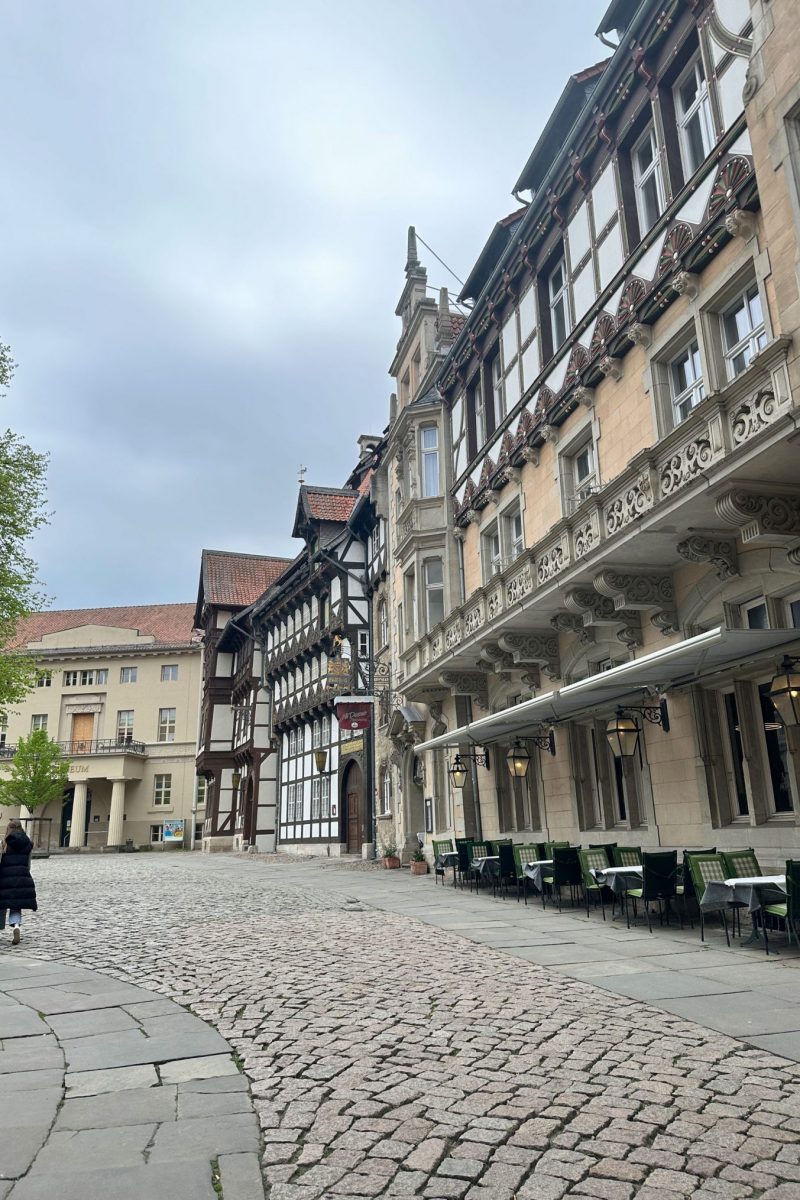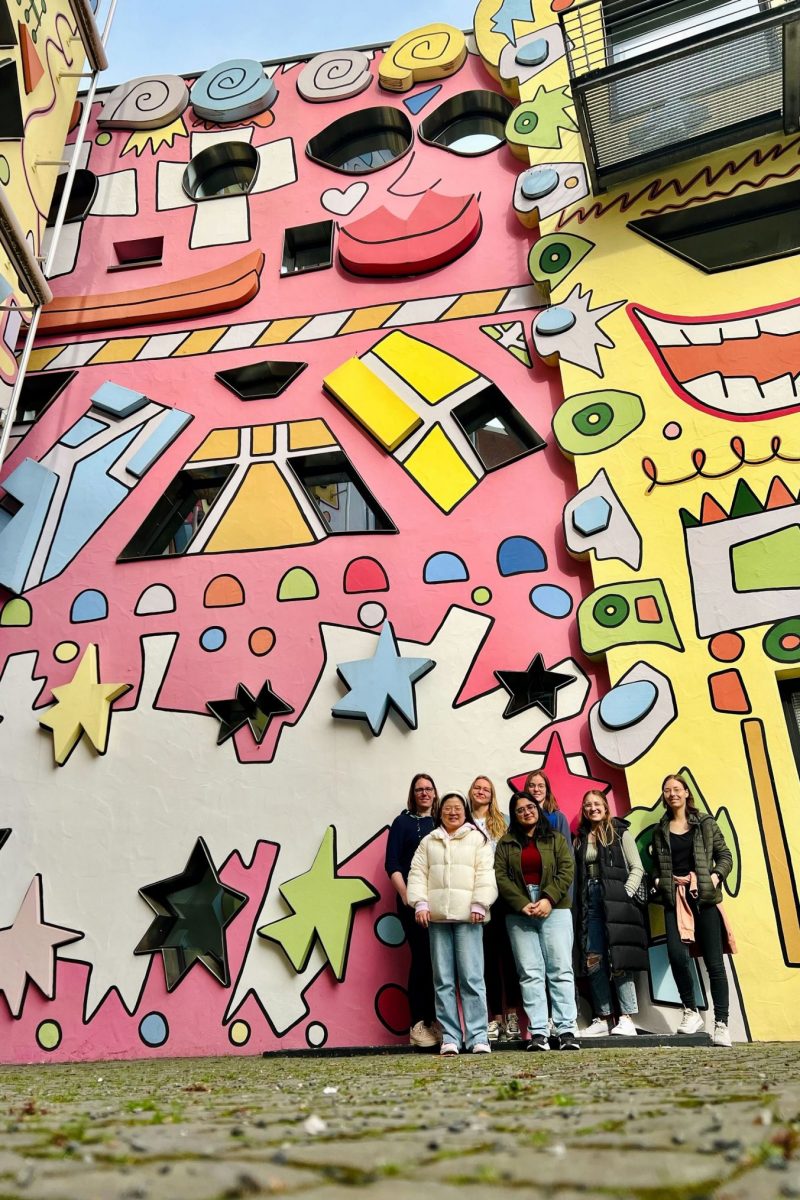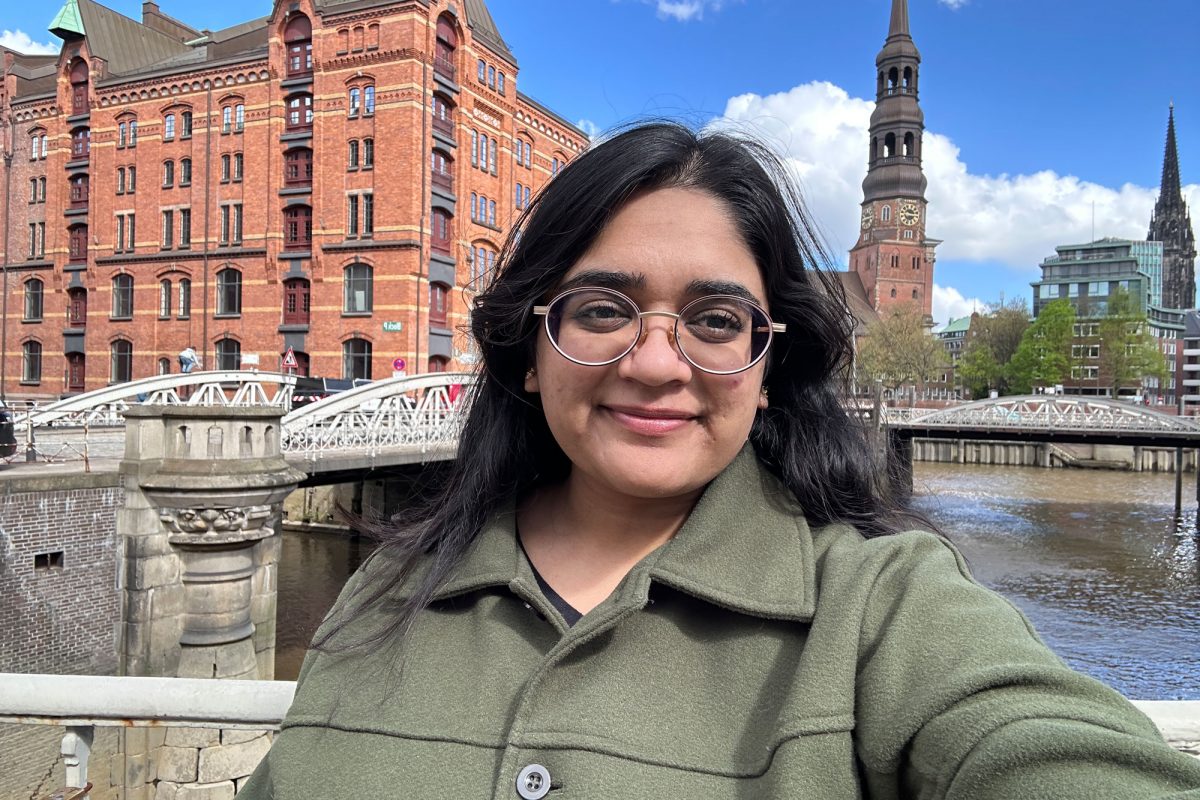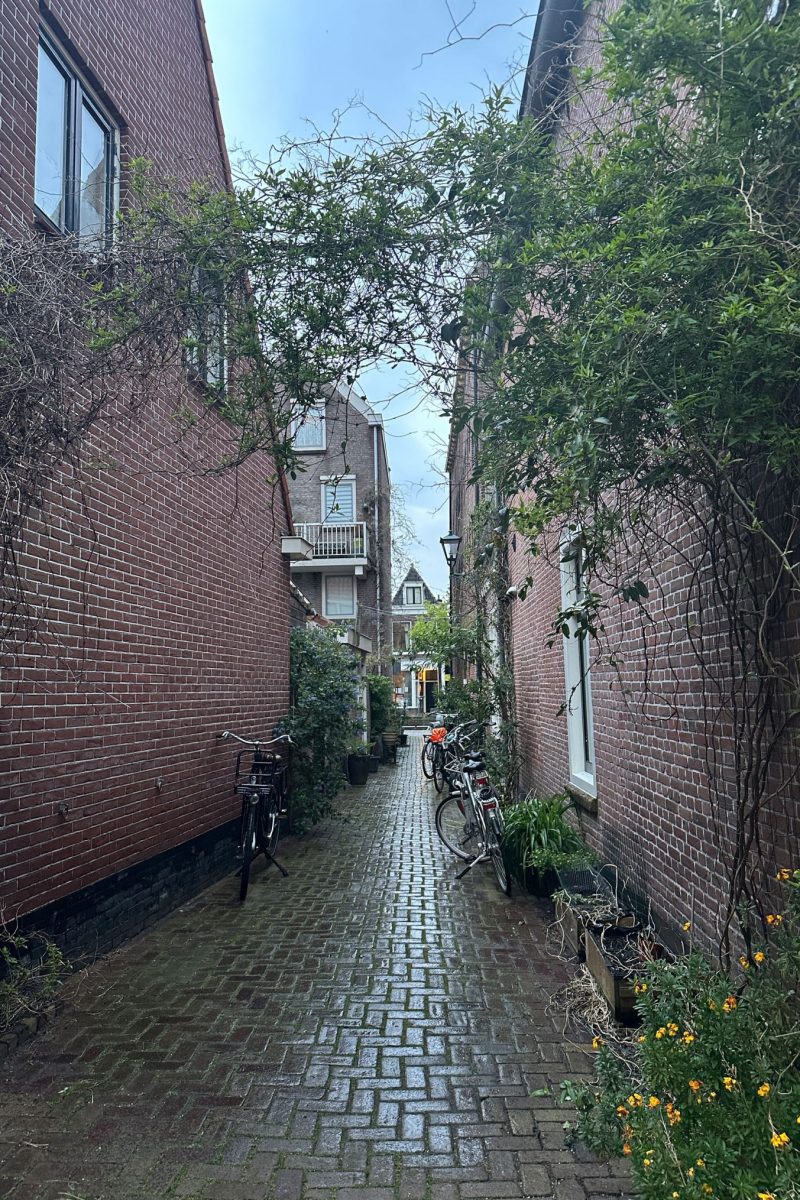Mail from … Braunschweig Jenica Kakadia from Canada spent three weeks at Braunschweig Integrated Centre of Systems Biology
General Information
This is what I am doing in Braunschweig:
I did a brief research stay at Braunschweig Integrated Centre of Systems Biology (BRICS), with Prof. Dr. Thekla Cordes’ group in Cellular Metabolism from TU Braunschweig and the Helmholtz Centre for Infection Research (HZI). Prof. Cordes and Prof. Ilka Heinemann, my PI (principal investigator) at Western University (London, Canada) developed a collaboration that allowed me to travel to learn new skills and techniques, as well as immerse myself in German culture. At BRICS, I was able to spend 3 weeks of April studying changes in metabolism in liver cells due to hypoxia, to better understand fetal health and development.
That’s why I decided to come to TU Braunschweig:
Following other experiments in my research, we were extremely curious to understand the changes in the metabolomics in our cell model, but our lab at Western University does not have the resources to follow through with all our planned experiments. Thanks to Dr. Cordes’ excitement to collaborate, generosity, and expertise in the field, we were able to create an experimental plan to truly delve into the changes in the metabolism that would’ve otherwise been difficult at my home university. Here, I was able to use many state-of-the-art machines, including their GC-MS, Seahorse analyzer, and hypoxia chamber, to further our understanding of the implications of nutrient deprivation.
What would you like to do after your stay and can you imagine staying in Braunschweig?
I plan to finish up my PhD in Canada, but Braunschweig has been a welcoming and friendly place I could certainly imagine revisiting!
Local life
This is how I live in Braunschweig:
As I was here for only a short stay, I rented an Airbnb not too far from the TU Braunschweig campus, near Prinz-Albrecht-Park.
What is the difference between researching in Germany and in your home country?
In Canada, I work at two different campuses: the University campus and at the hospital research institute (Children’s Health Research Institute). At both labs, we have separate labs for each professor, with each Principal Investigator managing a smaller group of students as well as all of the consumable resources and small equipment being shared only within the lab. It was very interesting to see how the space at BRICS is shared between the different labs, even down to the pipette boxes.
The labs here in Braunschweig feel more open and spacious and offersmany options for collaboration. On the other hand, in Canada, the labs are structured and ran quite differently, with graduate students being responsible to order the consumables for each lab. In Canada and Germany, there is a large emphasis on sharing spaces with students, with a lot of student volunteers and thesis students, so a lot of time goes to training them!
What is the difference between everyday life in Germany and in your home country?
I think the work ethic is similar in both places, with students working mostly 9-5 days and longer when needed. The cost of food was the biggest difference I noticed while here. In Canada, most people will pack lunches from home and takeout is limited on a student’s stipend, but a lot of my colleagues here often go on a short walk to a supermarket to grab food for lunch, since it is only a few euros. So, it is fun to do a little grocery trip for lunch! As well, Canadians get groceries once every 2-3 weeks, which is a lot less frequent than here.
That’s what I learned here in the first three days:
- How to open a German window. It seems silly, but I’ve never encountered these kinds of windows before, so it was the first thing I learned when I entered my Airbnb. I’m used to crank-windows, with one handle you just turn. I also understand the practice of ‘lüften’ now and I’ll bring it back to Canada!
- The transit system (although I know some Germans complain) is miles ahead of Canadian transit, and I was excited to learn about the Deutschland ticket for discounted transport.
The biggest challenge during my stay has been:
… knowing only a beginner level of German. Most people in Braunschweig at the grocery store or bakeries just assumed I speak German, and it was an interesting experience trying to respond without knowing fully what they were saying. I would just nod or shake my head and usually it worked, but of course, the language barrier is still challenging.
That’s what I will take home with me:
A massive dataset that may take me a lifetime to analyze (just kidding), memories of all the wonderful people at BRICS that I met, and of course, a yearning for fresh bread!
Good to know
This is my tip for other international students or academics who are planning a stay abroad in Germany:
Start learning German early! It’s useful knowing at least basic German phrases. As well, stay curious and never be shy to ask a question or admit you don’t know something – you are here to learn, after all. While here, immerse yourself in the culture and explore the different cuisines. The best part about studying abroad is amassing all the wonderful experiences you can carry with you for the rest of your life!
In my opinion, this is something that you should definitely try out in Braunschweig/Germany:
With everything so connected in Europe, it is definitely a treat to be able to spend a weekend doing a day trip in another city or even country, and I was able to go to Hamburg and explore the Netherlands! There are many botanical gardens and old architecture all over Germany, so I would really recommend seeking out these views. In Braunschweig, the city center is gorgeous, and I recommend walking around and popping into the small shops as it is a fun way to explore the city.
This is something I would like to add:
Thank you so much to everyone I met but especially to those in my hosting lab – Prof. Thekla Cordes, Birte, Fangfang, Lea, Hanna, Sina & Wiktoria – for being so welcoming and supportive in my research endeavors and for taking the time to offer guidance and teach me new techniques! This experience was only wonderful because you were, and I’m excited to return to Germany one day!

